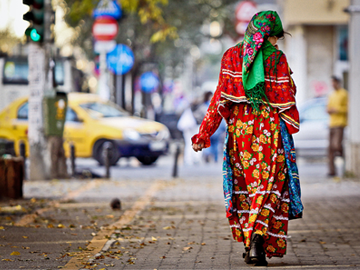News
Not much to celebrate: Roma children’s discrimination starts early in life

Today, 8th April, is International Roma Day. It is a day marked to celebrate Romani history, culture, language and aspirations. While we praise the intentions and the efforts behind this initiative, we must conclude that there is not much to celebrate. The Roma are still one of Europe’s most disadvantaged groups: they are highly discriminated against and suffer from negative stereotypes, high levels of poverty and unemployment, poor education and deprivation. 35.7% of Roma population is under 15, and the discrimination and marginalization Roma suffer has a big detrimental effect on children in terms of their rights, development, and possibilities for their future.
The problems Roma children face can start early in life and deny them access to a healthy, safe and educated childhood. For instance, they are more likely to be underweight and less immunized than non-Roma children, and often lack the birth certificate that signals their right to a whole range of services.
It has been demonstrated that early childhood services play an important role in improving future possibilities of children who are marginalized and experience discrimination. And yet, access to early childhood education is a big problem for Roma children, who then have a hard life in primary school and higher chance of school drop-out than their non-Roma peers.
On this day we want to urge European governments to intensify their efforts to put an end to discrimination and exclusion of Roma children. At ICDI we do our best to make a contribution. In 2017 we joined forces with the REYN (Romani Early Year Network) and started TOY for Inclusion: a project to counter discrimination and segregation of Roma children from a very early age. Through TOY for Inclusion we want to create bridges between Roma and non-Roma young children and their families. Together with our partners, we aim to establish Early Childhood Education Care Play Hubs in several European countries. These Play Hubs are meant to be safe spaces where relationships between Roma and non-Roma young children and their families can flourish. Many Play Hubs have already opened. Learn more about TOY for Inclusion here.